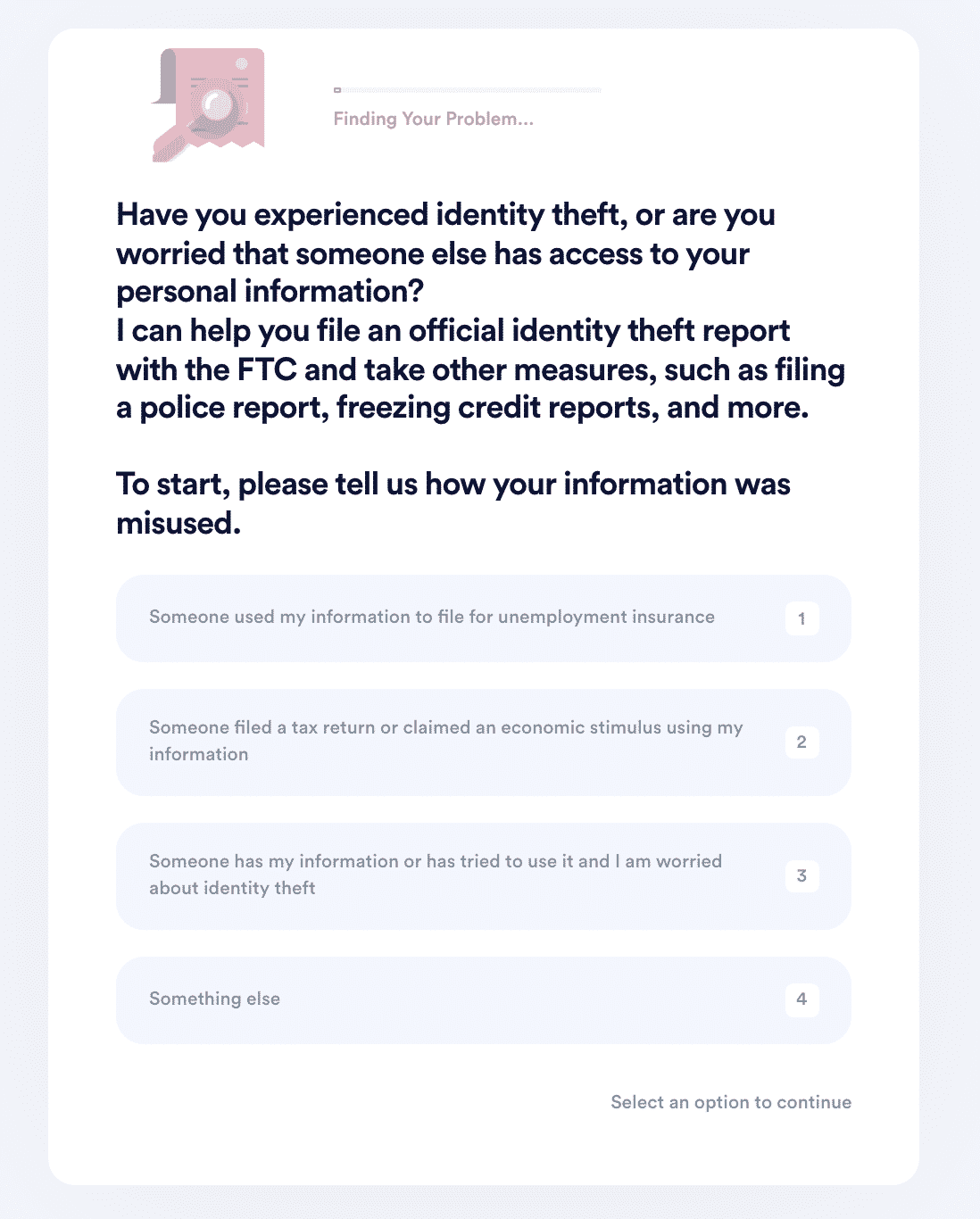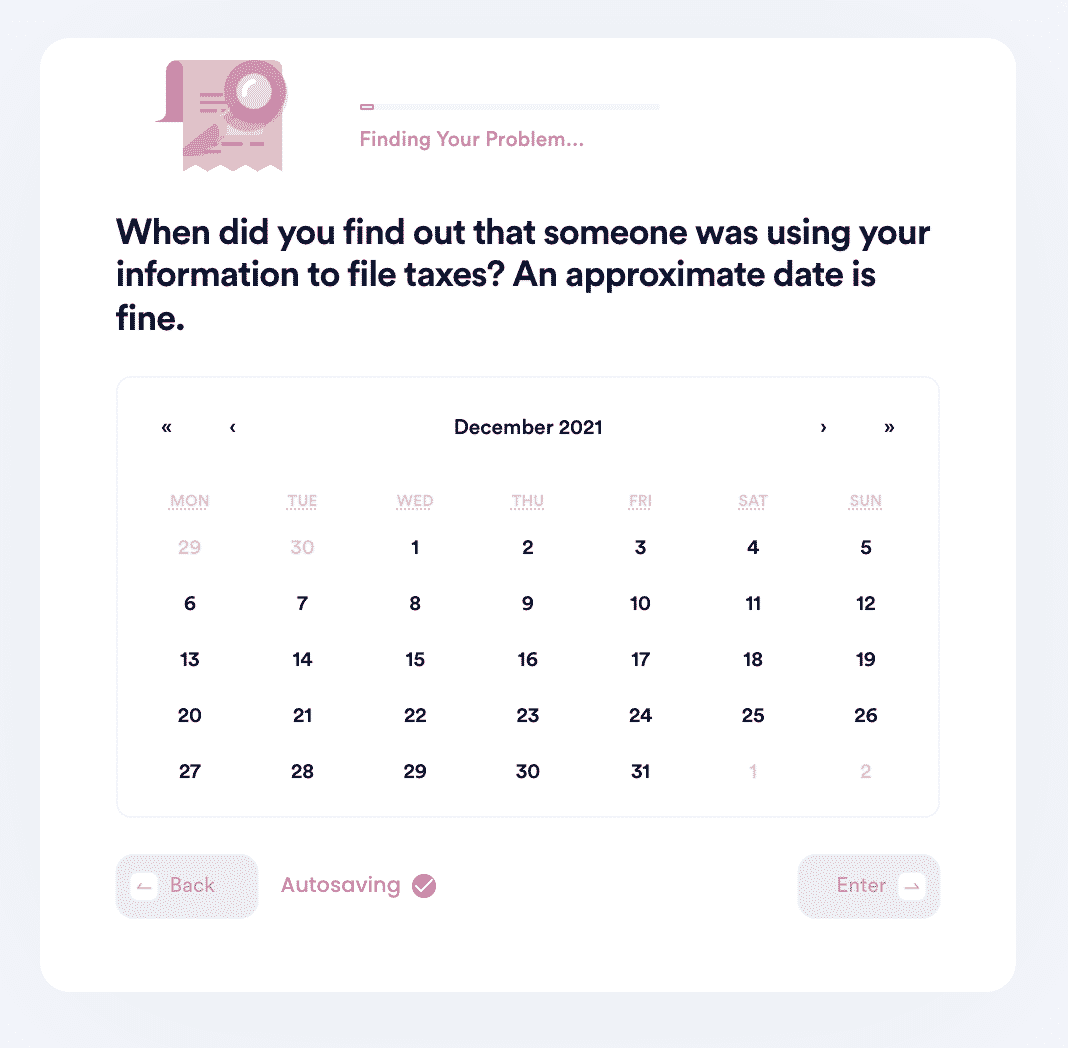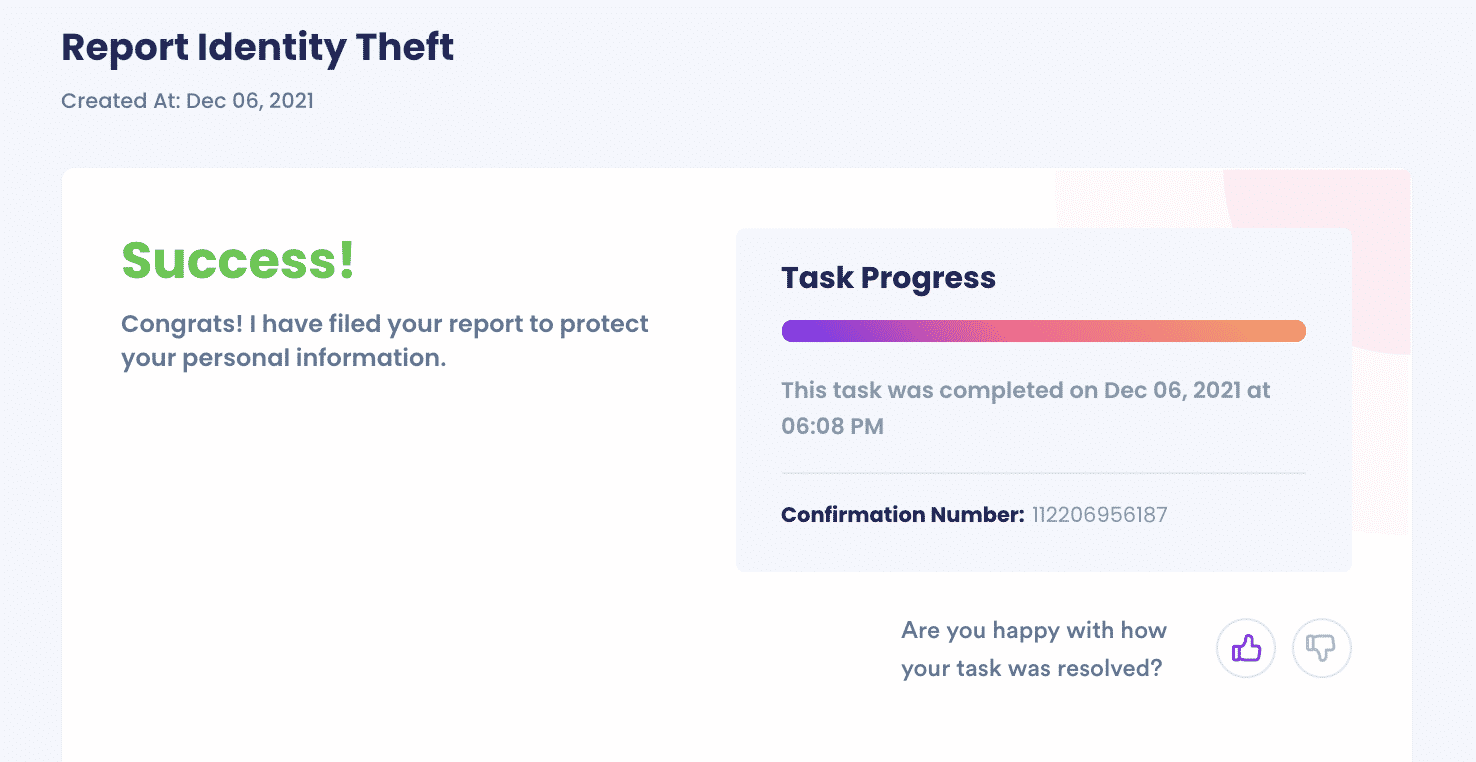How to Report Unemployment Identity Theft In Michigan In Minutes
More than 60 million American consumers have fallen victim to identity theft. Data breaches and the use of stolen or discarded documents allow criminals to access personal information that can be used to engage in fraudulent activity.
Credit card fraud is at an all-time high, and many people have reported stolen stimulus checks as the economy has struggled to recover from the worldwide pandemic. Knowing how to report identity theft can limit your potential exposure and financial risk.
In Michigan, fraudulent unemployment claims are on the rise, with criminals illegally accessing social security numbers and IRS information to manipulate the system.
With unemployment identity theft claims, Michigan has safeguards in place to protect its citizens. When that security gets violated, Michigan residents are dumbfounded, left to wonder how "someone filed for unemployment in my name?"
It is imperative to report fraud to the proper officials, but knowing where to turn for help is not always easy. DoNotPay can show you how to file an official report, ensuring your is addressed quickly and efficiently.
What Is Identity Theft?
The U.S. Department of Justice defines identity theft as "all types of crime in which someone wrongfully obtains and uses another person's personal data in some way that involves fraud or deception, typically for economic gain." The most common types of identity theft involve:
- Criminals obtain personal financial information from individuals that are unknowingly being watched in a public location.
- Pre-approved credit card offers that come in the mail are regularly discarded in the trash. Criminals can retrieve the document and activate the card, ringing up excessive charges, sometimes in a matter of only a few hours.
- Unsuspecting recipients fall prey to unsolicited emails that attempt to gain identifying information from them.
When a person becomes a victim of identity theft, a criminal can engage in fraudulent behavior that includes:
- Submitting an application for a loan or credit card in your name without your knowledge
- Withdrawals from your bank account
- Access to online accounts
- Purchasing goods or services that the criminal may be denied if using their real name
How to Report Someone For Unemployment Fraud in Michigan
The Department of Labor and Economic Opportunity handles all reports of unemployment insurance fraud or identity theft claims in Michigan. If you believe you are a victim of unemployment fraud, there are several ways to report the issue:
Online
Go to www.michigan.gov/uia and select the option for "Report Fraud" or "Report Identity Theft, depending on your particular situation.
By Phone
Contact the Unemployment Insurance Agency at 1-866-500-0017. A customer service representative will be able to help you file a claim. Keep in mind that you must call during regular business hours.
By Mail
First, you must download the Statement of Identity Theft (Form 6349) from the Unemployment Insurance Agency website. Print the form out and complete all the required information. Then, send the completed form to Unemployment Insurance Agency, PO Box 169, Grand Rapids, MI 49501.
By Fax
You can fax the completed Statement of Identity Theft (Form 6349) to 517-636-0427.
Signs That You May Be a Victim of Unemployment Identity Theft in Michigan
Many times, people do not realize they have been a victim of until they:
- Try to file an unemployment claim and discover that one already exists
- Receive an IRS Form 1099 G, a statement of benefits of unemployment insurance
- Are notified by their employer that an unemployment claim has been filed, and they are still employed
- Receive Form UIA 1575C Monetary Determination from Michigan
- Get an information request from the Unemployment Insurance Agency
Why Should I Contact the Credit Bureaus to Place a Fraud Alert?
If you believe you are a victim of unemployment identity theft in Michigan, you should immediately contact Equifax, Experian, or TransUnion.
| Equifax | 1-800-525-6285 | https://www.equifax.com/personal/credit-report-services/credit-fraud-alerts/ |
| Experian | 1-888-397-3742 | https://www.experian.com/fraud/center |
| TransUnion | 1-800-680-7289 | https://www.transunion.com/fraud-alerts |
A fraud alert will be placed on all three of your credit bureau reports.
All future creditors will be alerted to take additional steps to verify your identity before issuing credit. The length of time the alert stays on your report is flexible and can be removed at any time without affecting your credit score.
How DoNotPay Can Help You Report an Identity Theft Unemployment Claim in Michigan
DoNotPay is the perfect solution for an otherwise complicated process. Being a victim of identity theft can lead to a vast array of problems that can be difficult to navigate on your own. Filling out tedious forms, waiting on hold for customer service assistance, or trying to find the right place on a website to file a dispute can be time-consuming and frustrating.
Fortunately, DoNotPay has created an automated system to make reporting as easy as 1-2-3.
How to deal with identity theft using DoNotPay:
- Search "identity theft" on DoNotPay and select the type of incident you would like to report.

- Tell us more about the incident that occurred, including the location, date, time, financial loss, and any suspect information you may have.

- We'll identify whether you should file an FTC report, contact the IRS, freeze your credit report, contact state agencies, or file a police report. Once we guide you through the best options, we'll automatically submit the reports on your behalf!

What Else Can DoNotPay Do?
Having DoNotPay on your side provides access to many issues that may arise, such as:
- Compensation for victims of crime
- Contacting government representatives
- File a lawsuit in small claims court
- Dispute insurance claims
DoNotPay can also help you determine how much you can send demand letters to for identity theft and generate a demand letter for compensation, if necessary.
Being a victim of identity theft is a violation of your rights and can be a scary endeavor to overcome. Don't go it alone! Use the resources available to you through DoNotPay. We will help you get to the root of the problem and show you ways to ensure you are not at risk of further exposure to fraudulent activity.


